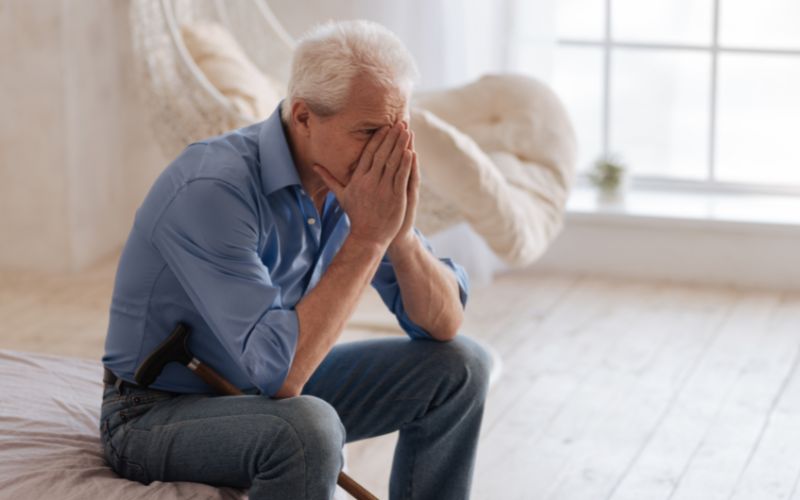Sadness is a common mental well-being condition that can influence anybody, notwithstanding of age. Be that as it may, misery in more seasoned grown-ups can be particularly challenging to oversee and regularly goes unrecognized or untreated. According to the World Wellbeing Organization, misery influences roughly 7% of grown-ups aged 60 and over.
Depression can have noteworthy results on the physical and mental well-being of more seasoned grown-ups. It can lead to expanded hazards of unremitting ailments, inability, and diminished quality of life. Besides, sadness can increase the chance of suicide, which is a genuine concern for more seasoned adults.
Symptoms of Sadness in More Seasoned Adults
Depression can show unexpectedly in more seasoned grown-ups than in more youthful individuals. A few common indications of misery in more seasoned grown-ups include:
Diligent pity or moo mood
Misfortune of intrigued or delight in exercises once enjoyed
Misfortune of craving or overeating
Sleep deprivation or intemperate sleeping
Need for vitality or fatigue
Sentiments of misery, uselessness, or helplessness
Trouble concentrating or making decisions
Physical indications such as migraines or stomach-related problems
Self-destructive considerations or behaviors
Methodologies for Improvement
Depression in more seasoned grown-ups can be challenging to treat, but there are a few methodologies that can offer assistance move forward with side effects and quality of life.
Psychotherapy: Psychotherapy, moreover known as conversation treatment, can be a successful treatment for sadness in more seasoned grown-ups. Treatment can assist people in distinguishing negative contemplations and behaviors and creating adapting methodologies to oversee them. Book a one-on-one session with an expert.
Pharmaceutical: Upper medicines can moreover be accommodating in treating sadness. In any case, it's critical to work with a healthcare proficient to discover the right pharmaceutical and measurement, as a few medicines can have unfavorable impacts on more seasoned adults.
Workout: Workout can be a compelling procedure for overseeing misery in more seasoned grown-ups. Indeed light work, such as strolling, can have positive impacts on disposition and general health.
Social bolster: Keeping up social associations is significant for more seasoned grown-ups, particularly those encountering misery. Locks in in social exercises and looking for bolster from family and companions can offer assistance make strides in temperament and decrease sentiments of loneliness.
Sound way of life: Keeping up a sound way of life can also offer assistance move forward with sad side effects. Eating a nutritious slim down, getting sufficient rest, and maintaining a strategic distance from liquor and drugs can all have positive impacts on mental health.
In conclusion, sadness in more seasoned grown-ups is a genuine concern that can have noteworthy results on physical and mental well-being. Recognizing side effects and looking for treatment can offer assistance move forward in quality of life and diminish the hazard of genuine complications. By utilizing methodologies such as treatment, medicine, workout, social bolster, and solid way of life propensities, more seasoned grown-ups can oversee discouragement and live a satisfying life.

Leave a Reply